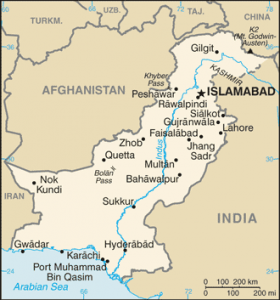Pakistani health authorities are reporting the 12th fatality this year in Sindh province due to the brain-eating amoeba, Naegleria fowleri, according to an Express Tribune report Friday. This is the second case/death reported in the Sindh capital of Karachi in a week.

This comes 6 weeks after the Karachi Water & Sewerage Board (KWSB) in cooperation with Sindh Health Department started a safety measure and precaution awareness campaign against Naegleria in the city. However, Dr Syed Zafar Mehdi, the focal person of the Naegleria Control Committee, points to the lack of supplied chlorinated water as the problem.
Naegleria fowleri (commonly referred to as the “brain-eating amoeba”), is a microscopic amoeba which is a single-celled living organism. It can cause a rare and devastating infection of the brain called primary amebic meningoencephalitis (PAM). The amoeba is commonly found in warm freshwater such as lakes, rivers, ponds and canals.
Infections can happen when contaminated water enters the body through the nose. Once the amoeba enters the nose, it travels to the brain where it causes PAM (which destroys brain tissue) and is usually fatal. Infections usually occur when it is hot for prolonged periods of time, which results in higher water temperatures and lower water levels.
Naegleria fowleri infections are rare. Most infections occur from exposure to contaminated recreational water. Cases due to the use of neti pots and the practice of ablution have been documented.
The practice of ablution is included in Yogic, Ayurvedic, and Islamic traditions. Within the Islamic faith, ritual nasal rinsing is included in a cleansing process called “wudu” or “ablution.” It is usually performed several times a day in preparation for prayer, according to the Centers for Disease Control and Prevention.
You cannot be infected with Naegleria fowleri by drinking contaminated water and the amoeba is not found insalt water.
Initial symptoms of PAM usually start within 1 to 7 days after infection. The initial symptoms may include headache, fever, nausea, or vomiting. Other symptoms can include stiff neck, confusion, loss ofbalance, seizures, and hallucinations. After the start of symptoms, the disease progresses rapidly.
Related stories: Neti pots, Naegleria and you
Japanese Encephalitis outbreak in India’s Assam State kills 66
WHO looks to include targeted interventions for P. vivax in malaria control strategy


2 thoughts on “Sindh Naegleria fowleri death toll reaches a dozen in 2015”